General
Mak Hosts International Workshop on Mainstreaming Gender in NORHED II Projects
Published
3 years agoon
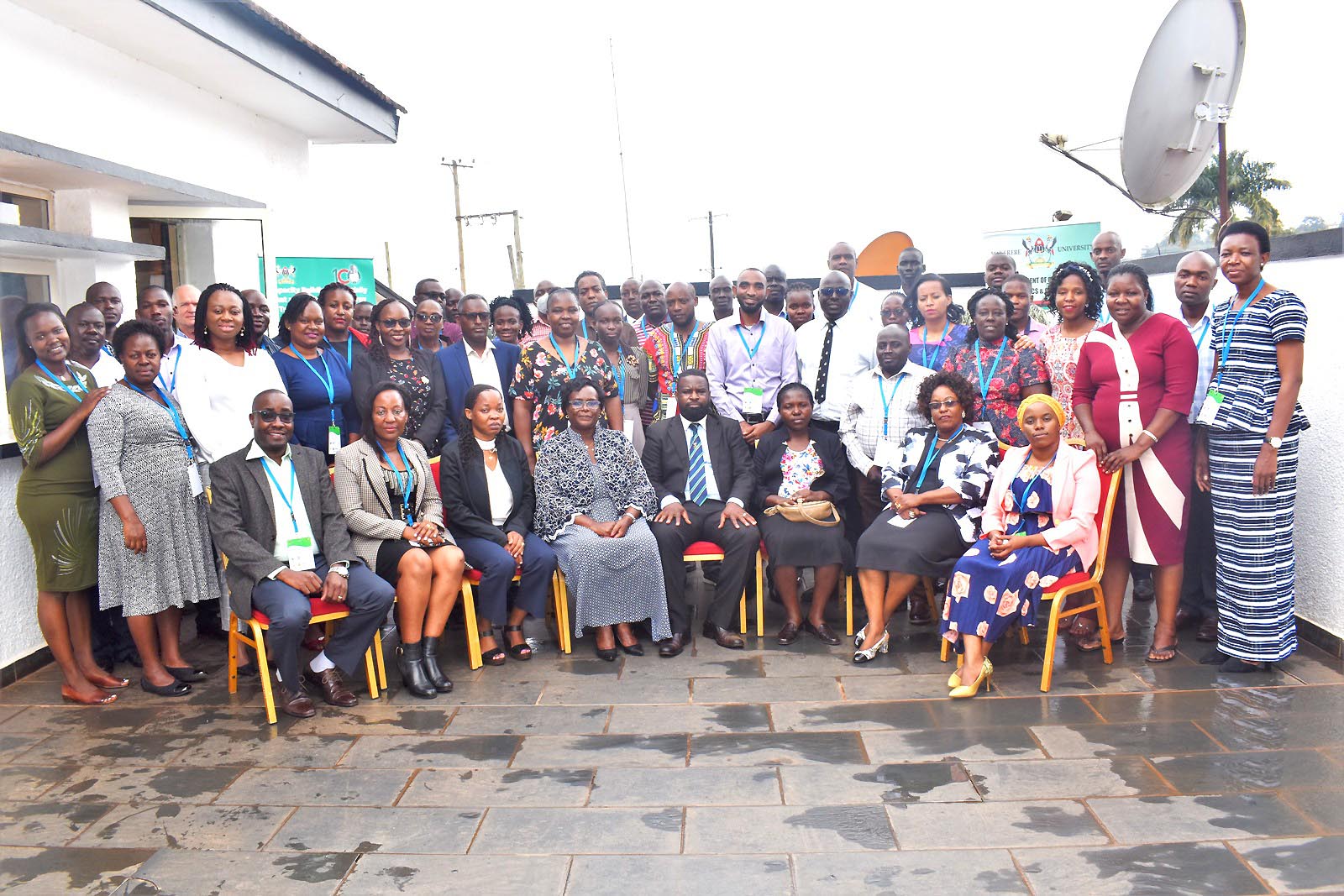
Overview
Creating equal opportunities for men and women as well as boys and girls has long been an important priority for Norwegian development assistance. The 2030 Agenda and its17 Sustainable Development Goals (SDGs) constitute the guiding frame for Norwegian development support.
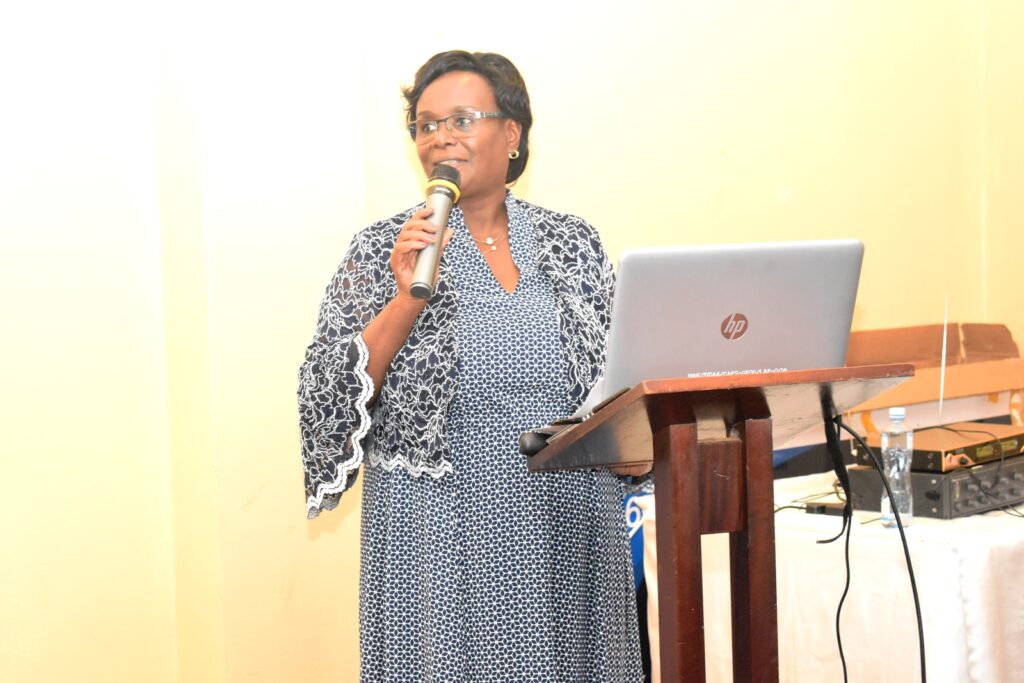
As such, the Norwegian Programme for Capacity Building in Higher Education and Research for Development (NORHED) has special focus on SDG 4 (Ensure inclusive and equitable quality education and promote lifelong learning opportunities for all), SDG 5 (Achieve gender equality and empower all women and girls), and SDG 17 (Strengthen the means of implementation and revitalize Global Partnerships for sustainable development). The Norwegian development policy mandates all Norwegian-supported institutions to integrate gender and equality as cross cutting issues in NORHED-funded Programmes.
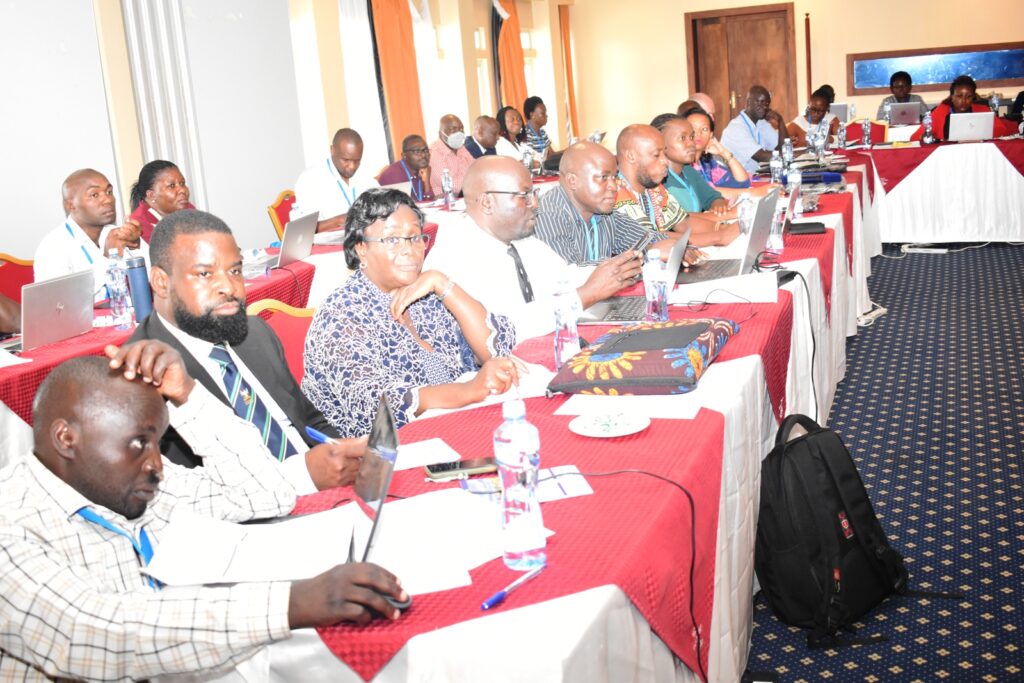
Workshop on mainstreaming gender in NORHED II projects
On 30th August 2022, beneficiaries of the NORHED II projects in Eastern Africa convened at Laico Lake Victoria Hotel, Entebbe to discuss and brainstorm on ways of mainstreaming gender in NORHED II Projects. Held under the theme: “Gender Mainstreaming: Beyond Binaries”,the three-day workshop was attended by participants from Makerere University; Makerere University Business School (MUBS); Uganda Matyrs University; Technical University of Kenya (Nairobi); University of Juba (South Sudan);University of Dar es Salaam (Tanzania); University of Rwanda; Haramaya University, Dilla University, Hawassa University, and Bahir Dar University (Ethiopia); and the Norwegian University of Science and Technology (NTNU).
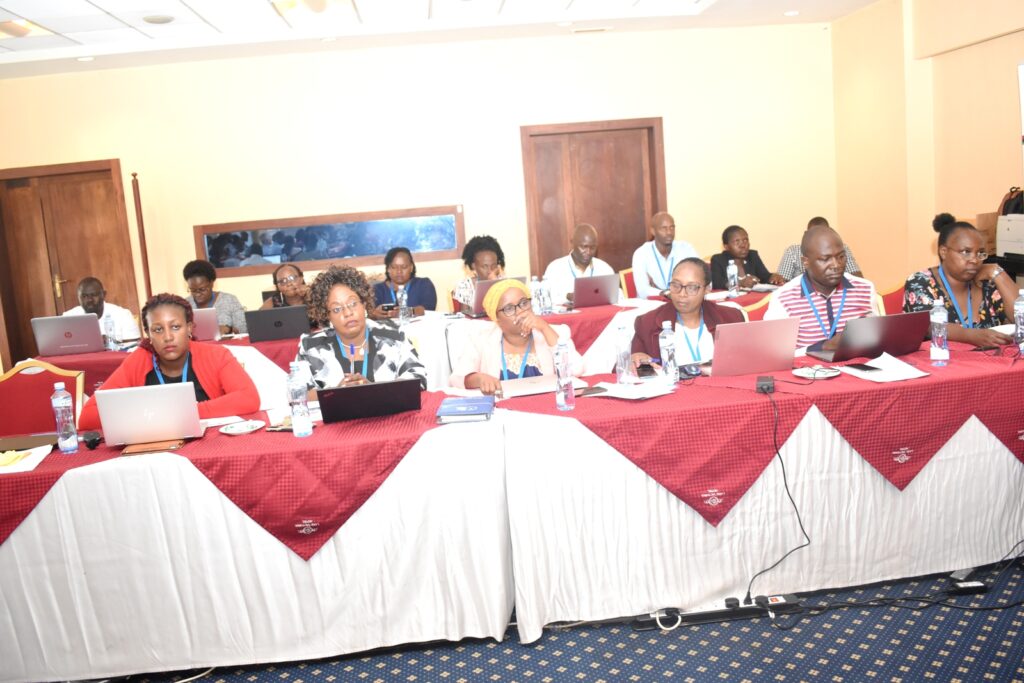
The workshop was organized by Makerere University and NTNU in collaboration with partner institutions. It was coordinated by Prof. Frank Mugagga, Head, Department of Geography, Geo-informatics and Climatic Sciences at the College of Agricultural and Environmental Sciences (CAES), Makerere University, also coordinator, Capacity Building for Socially Just and Sustainable Energy Transitions (SET) project, as well as Charlotte Anne Nakakaawa-Jjunju from NTNU. The opening ceremony was presided over by Ms. Mary Mabweijano, Senior Programme Officer at the Royal Norwegian Embassy in Kampala. It was graced by the Director, Research and Graduate Training at Makerere University, represented by the Deputy Director, Prof. Robert Wamala, and Ms. Ingvild Heggstad from NTNU International Office, also Senior Adviser and coordinator for NORHED II.
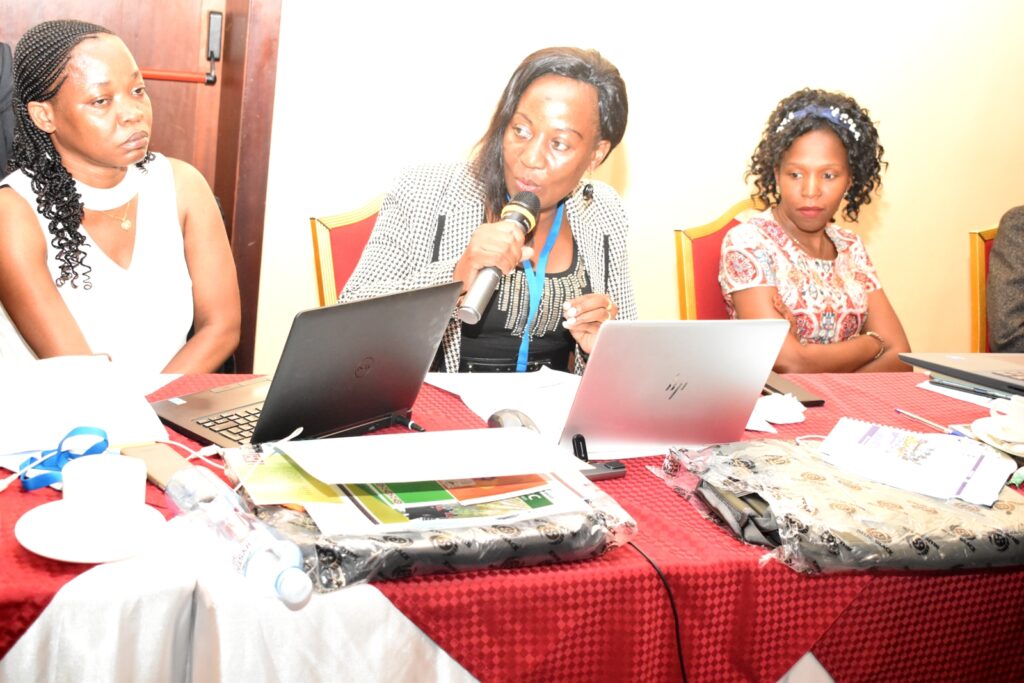
Remarks by the Senior Programme Officer, Royal Norwegian Embassy, Kampala
Highlighting the importance of mainstreaming gender in NORHED projects as part of the Norwegian Development Policy, Ms Mary Mabweijano-Senior Programme Officer at the Royal Norwegian Embassy in Kampala re-emphasized the need to incorporate gender perspectives in curriculum, teaching, research, and governance. She called for increased participation of female students at post graduate level ‘where gender imbalance is most significant’.
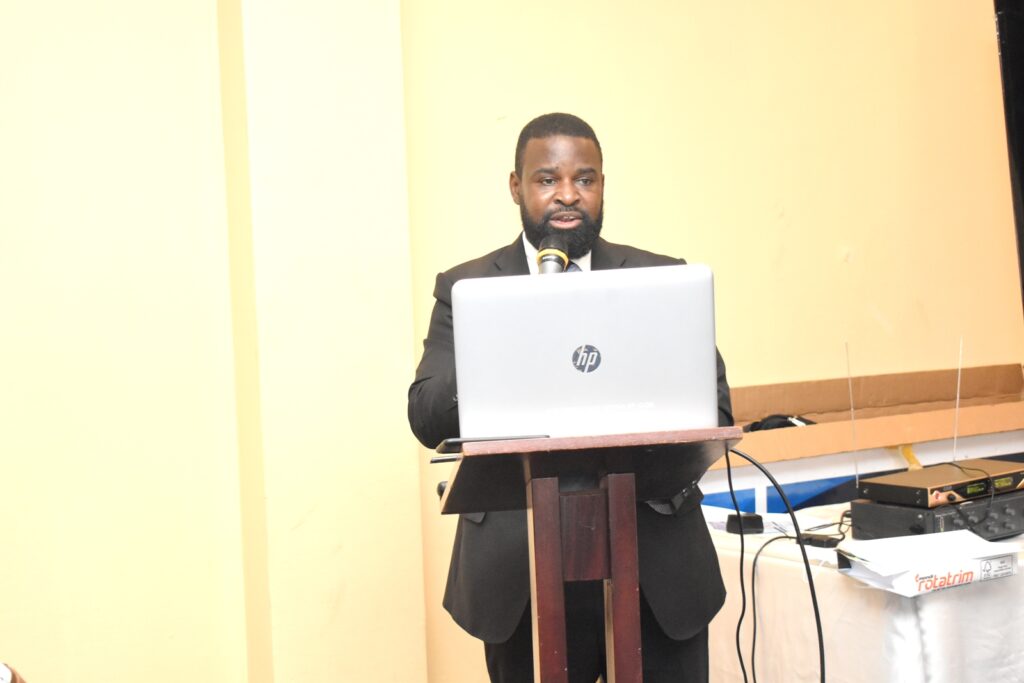
“Special measures have been integrated to facilitate female participation in study programmes and research through scholarships, publication grants, mentorship programmes and leadership training. The expectation is that good results will be achieved by the end of the project cycles not only in research but also in areas of career advancement to senior leadership positions,” she explained, calling on the project beneficiaries to be ambassadors of gender mainstreaming.
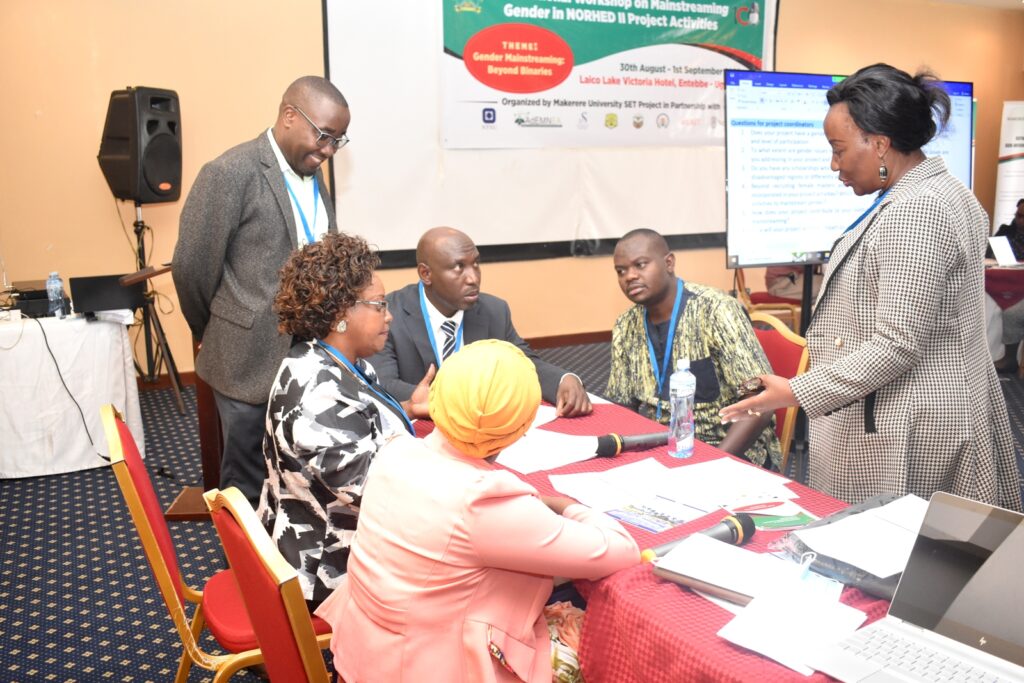
Mainstreaming Gender in Higher Education and Research – Progress thus far
During the workshop, officials from Makerere University, Bahir DAR University (Ethiopia) and the University of Dar es Salaam in Tanzania briefed participants on progress made in mainstreaming gender in higher education and research at their respective institutions.
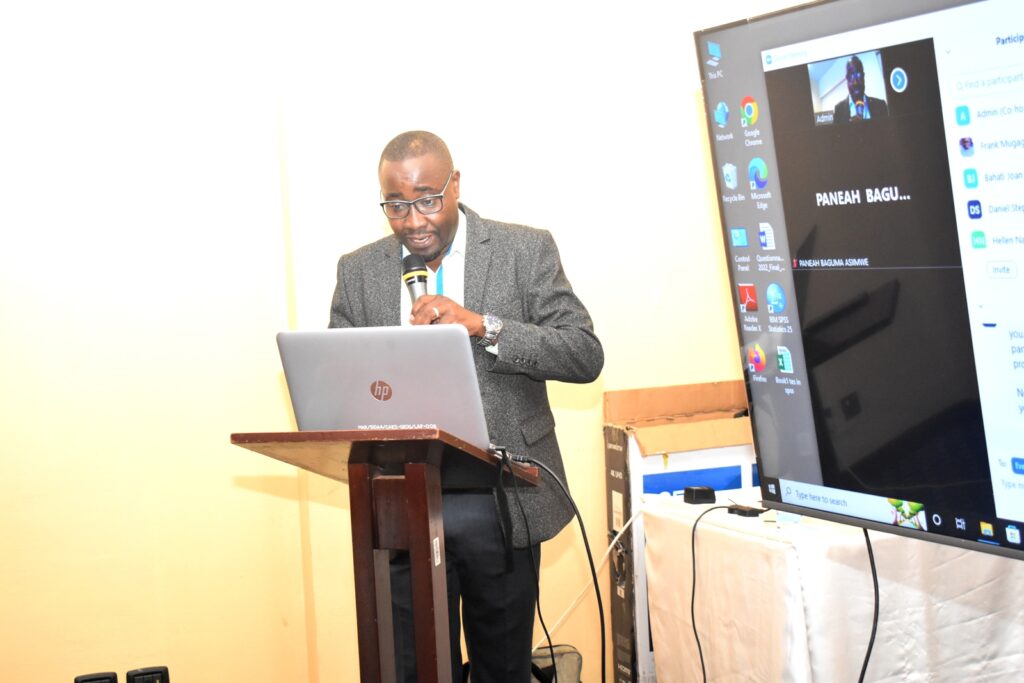
Presenting the policy framework for mainstreaming gender at Makerere University, Dr Euzobia Baine Mugisha, Director, Gender Mainstreaming acknowledged the support of the Norwegian Governmenttowards the establishment of the Department of Women and Gender Studies and the Gender Mainstreaming Directorate (GMD) at Makerere. The mandate of the GMD is to mainstream gender in the University functions of teaching and learning; research and innovations; knowledge transfer partnerships and networking and support services. In her presentation, Dr Euzobia noted that although significant progress had been made,and several policies put in place to mainstream gender in all programmes, there was still significant imbalance with fewer women progressing to higher academic ranks and taking on leadership positions.
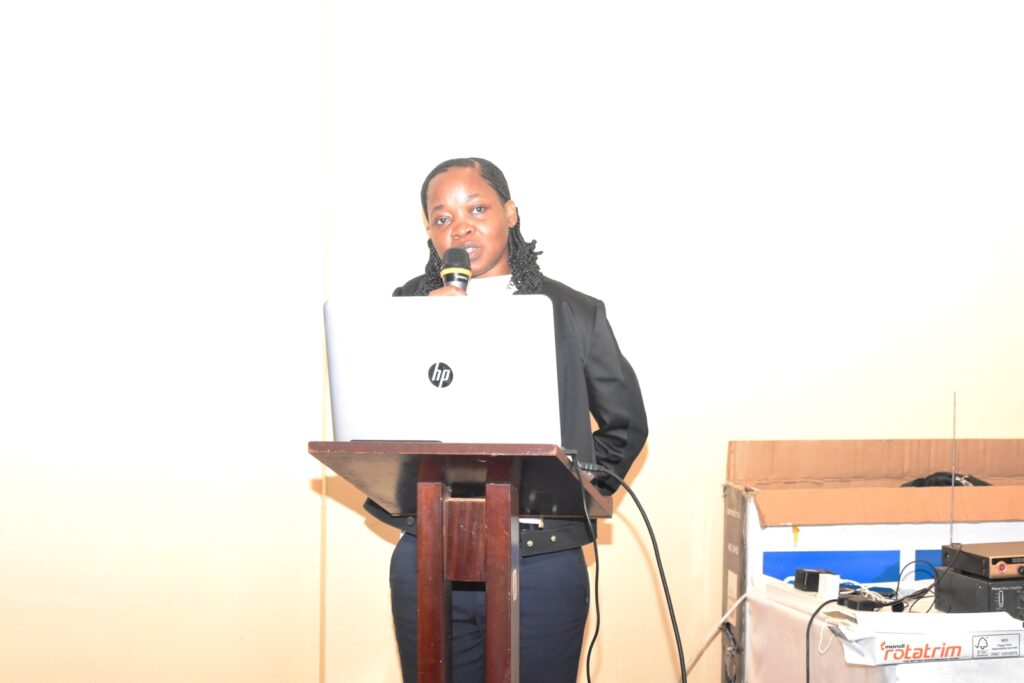
Out of 98 professors at Makerere University, only 16 are women. At Governance level, there are only 6 women in the University Council out of 18 members, 13 in the University Senate out of 76 and only 5 out of 17 members in Central Management. “Research is also still gender blind. As a University, we must be intentional about improving staff and students’ welfare and incorporating gender in all activities. Placing gender officers at each of the Colleges would enhance processes of mainstreaming gender in university programmes,” she noted, calling for a harmonized legal and policy framework to support gender mainstreaming activities at all levels. She also called for capacity building for all staff to fully appreciate and adopt the gender mainstreaming approach to teaching and learning as well as research and innovations.
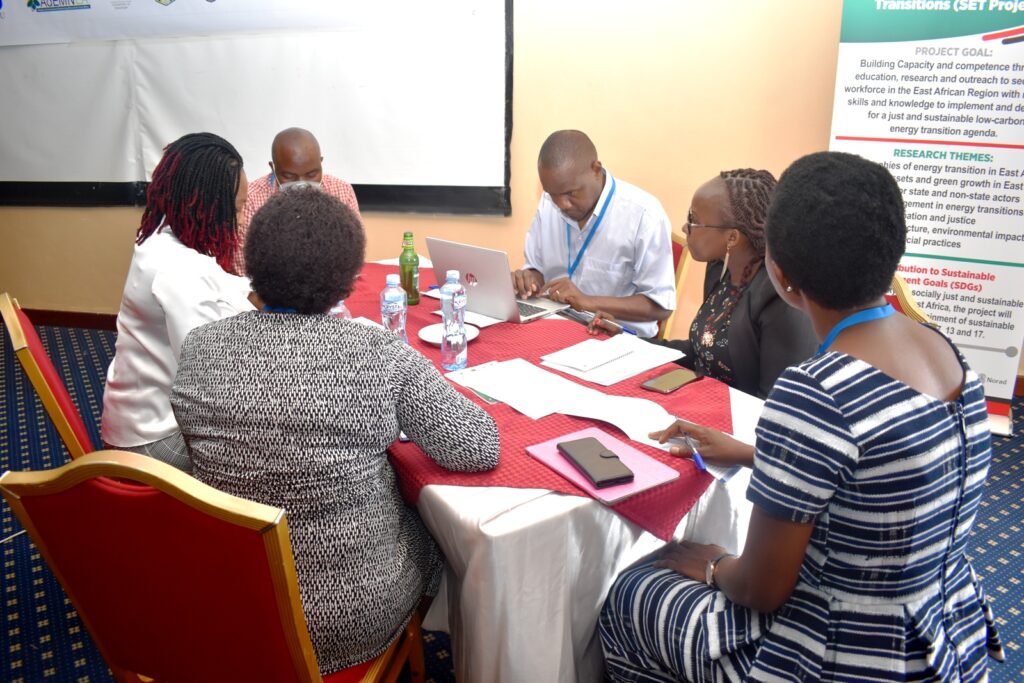
Highlighting the progress in gender mainstreaming in Ethiopia, Dr. Meskerem Lechissa, Assistant Professor, Curriculum and Instruction at Bahir Dar University noted that although notable achievements had been registered in leadership with about 40% female ministers, Ethiopia still ranks among the bottom 35 countries in index for offering equal access to education to both boys and girls.“44% women are illiterate, compared to 59% men and only 26% of secondary school age females are enrolled in school,” she noted, explaining that a number of measures have been put in place to promote gender equality. These include affirmative action – lowering entry points for girls and putting in place a research budget for women and girls, expansion of universities to underserved Regions, National Code of Conduct for eliminating sexual harassment (Zero tolerance), establishment of Gender Offices in all higher education institutions, gender audit of infrastructures (gender sensitivity and security), economic support for disadvantaged girls, and contractual agreements signed by academic staff to employ gender responsive pedagogy.
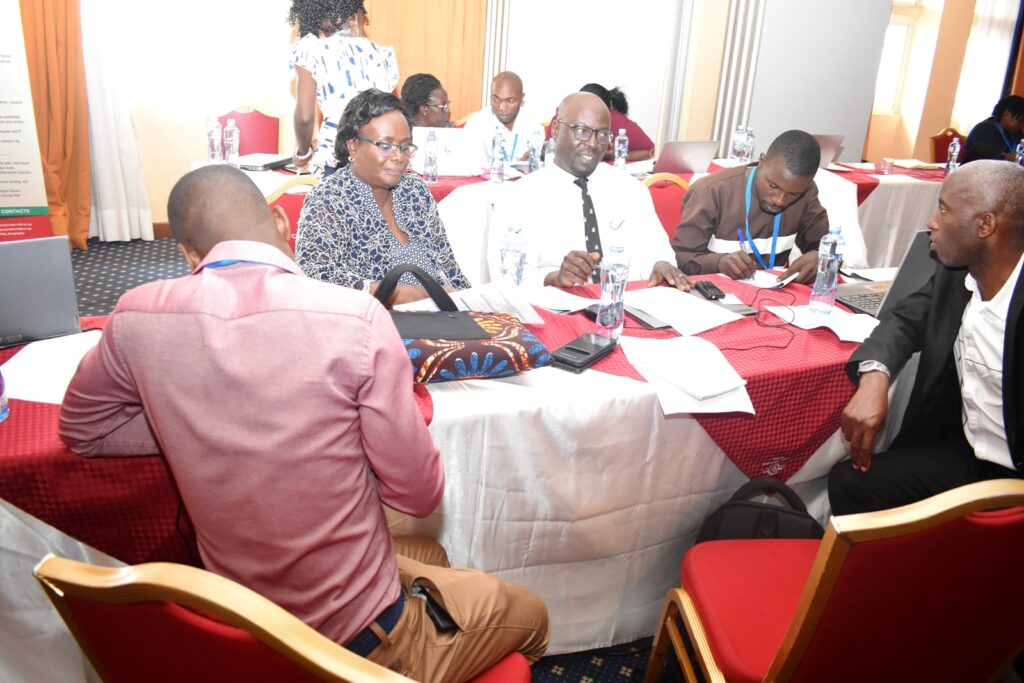
Brainstorming on strategies for mainstreaming gender in NORHED II Projects
In the course of the workshop, participants discussed and shared strategies and activities for ensuring that gender issues are incorporated in the NORHED II Project activities. The NORHED II supported projects include EnergyNET led by Dr Karidewa Nyeinga from the College of Natural Sciences, Makerere University; Water Essence Africa led by Dr Ronald Semyalo (CoNAS, Mak); SET; Energy Economics and Governance; MERIT, JUST Transitions and CSA led by Prof. Gorettie Nabanoga from the College of Agricultural and Environmental Sciences, Makerere University; Adaptive Environmental Monitoring Networks for East Africa (AdeMNEA) led by Dr Agnes Rwashana Semwanga from Makerere University; Co-creating Knowledge for Local Adaptation to Climate Change in LDCs (COLOCAL); Capacity Building in Renewable Energy Research and Education in Ethiopia (ReREd) led by Dr Habtamu Temesgen Hawassa University; Capacity Building for Research-Based Teacher Education (CABUTE); Transformative Education and Lifelong Learning for Sustainable Growth (TELLS); and Gender and Digitalization (GENDIG) coordinated by the School of Women and Gender Studies Makerere University.
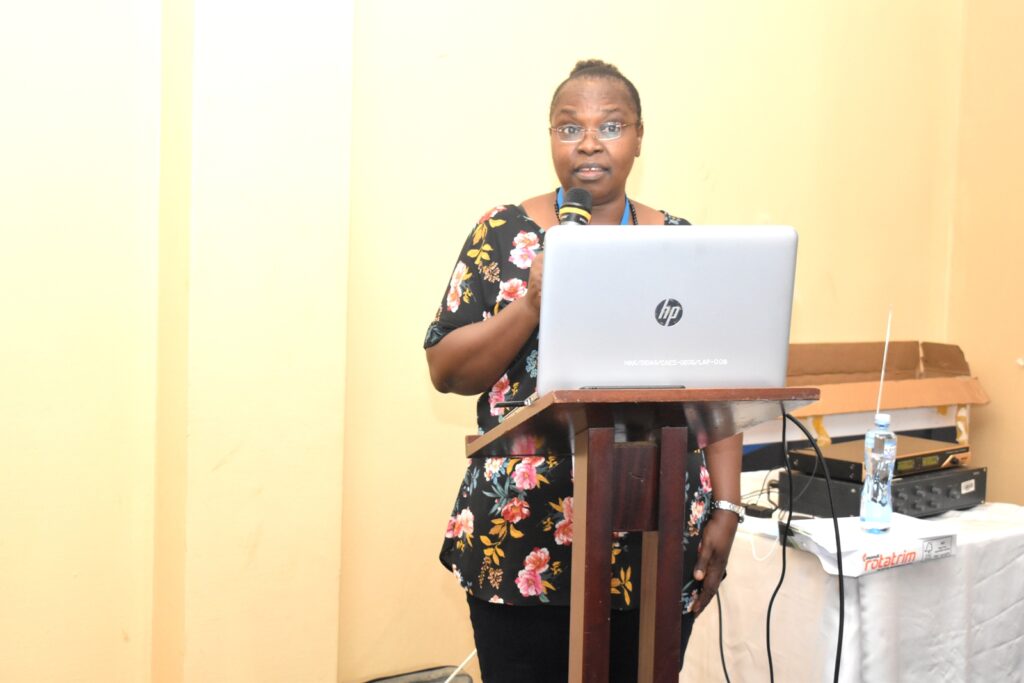
As part of the measures to improve gender mainstreaming in NORHED II projects, participants called for intensified gender trainings for gender focal persons and increased involvement of men in gender issues.They also emphasized the need to be more intentional about gender considerations in all project activities.
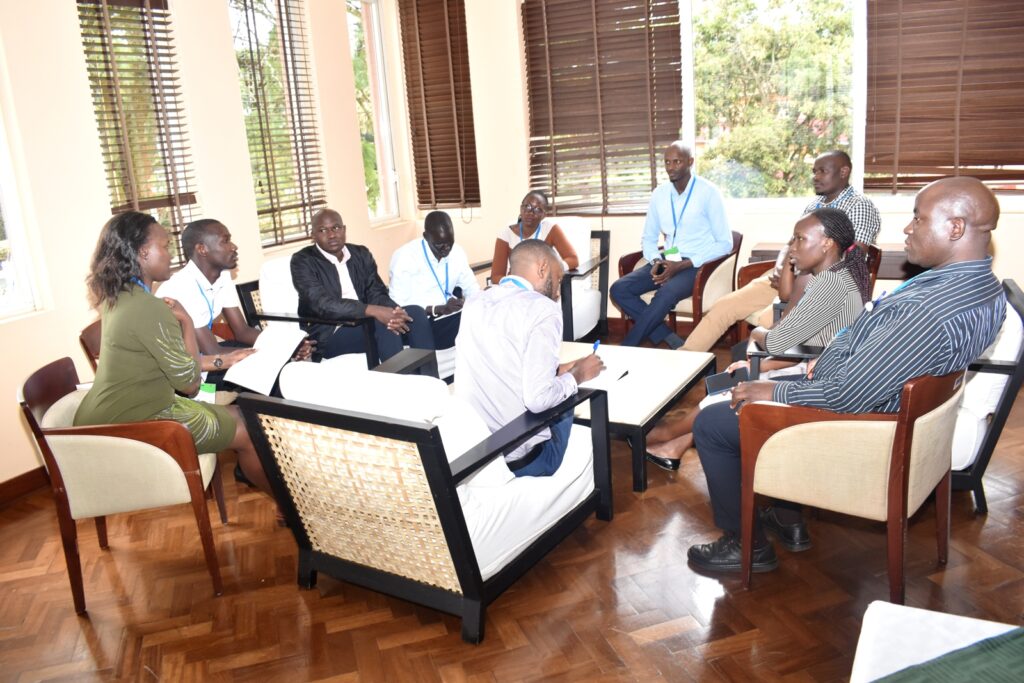
Delivering a keynote on gender mainstreaming in education and research, Prof. Gorettie Nabanoga, Principal, College of Agricultural and Environmental Sciences, Makerere University, also gender focal person -NORHED II Projects, re-echoed the importance of diversity and Inclusivity in ensuring equity in all aspects of Education.
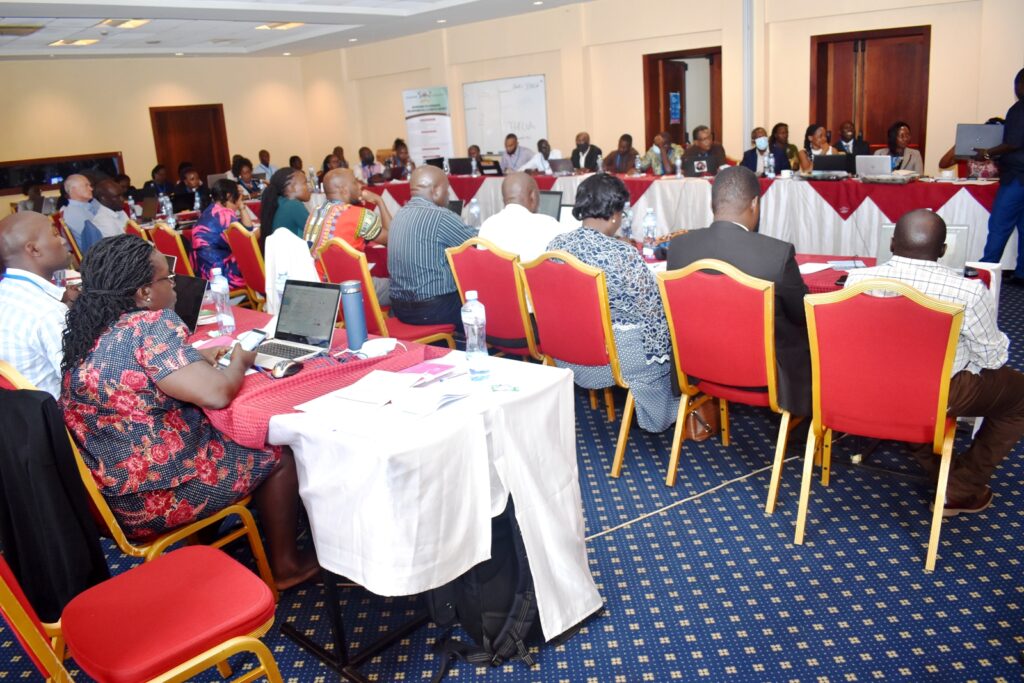
In the course of the workshop, Dr Julianne Sansa –Otim, coordinator of the AdeMNEA project presented her research on persuasive technologies intended to boost psychological well-being among career women, whereas Dr. Angelina Bazugba from the University of Juba shared views on mainstreaming gender in pedagogy.
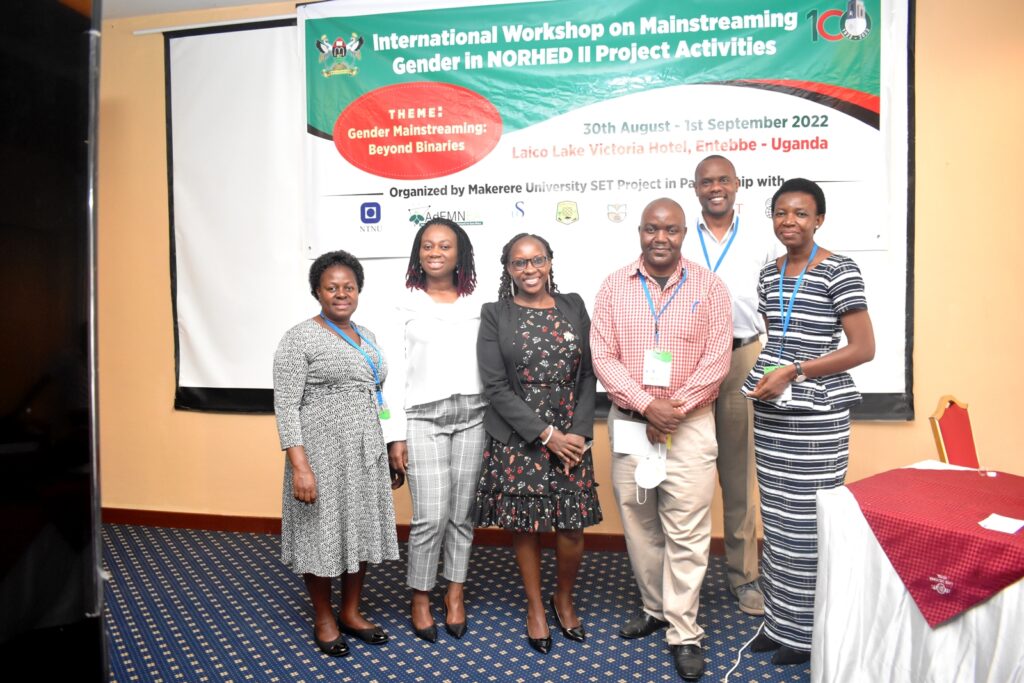
On behalf of the Director, Research and Graduate Training, Makerere University, the Deputy Director, Dr Robert Wamala emphasized the importance of mainstreaming gender on all activities at the University. “Gender considerations are crucial as we celebrate 100 years of excellent service and move towards becoming a research-led university. We should therefore dig deep into issues of gender in our pursuit to transform our countries,” he noted.
Details about NORHED II Projects: https://news.mak.ac.ug/2021/09/mak-listed-in-19-of-60-projects-to-be-funded-under-norhed-ii/
You may like
-


Mak Selected to Host Alliance for African Partnership Africa Office
-


Meet Najjuka Whitney, The Girl Who Missed Law and Found Her Voice
-
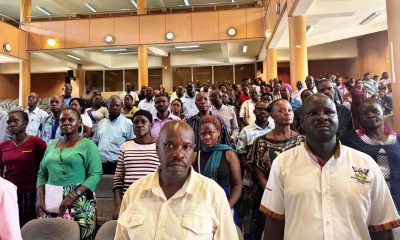

Support Staff Trained to Promote Safety of Students and Stakeholders
-


Makerere Launches Scholarly Guide, Calls for Increased Research, Publication and Innovation in Africa
-


For Youth by Youth – Call for Second Cohort Applications
-


Dr. Samalie Namukose and the Quiet Work of Making Nutrition Count
General
Over 9,200 to graduate at Makerere University’s 76th Graduation
Published
9 hours agoon
February 24, 2026
Pomp and colour defined the opening day of the Makerere University’s 76th Graduation Ceremony as thousands gathered to celebrate academic excellence and new beginnings.
The historic ceremony has brought together scholars, families, friends and industry partners in a vibrant celebration of achievement and possibility. Throughout the four-day event, the University will confer degrees and award diplomas to 9,295 graduands in recognition of their dedication and hard work.
Among the graduates, 213 will receive Doctor of Philosophy (PhD) degrees, 2,503 will graduate with Master’s degrees, and 6,343 will earn Bachelor’s degrees. In addition, 206 students will graduate with postgraduate diplomas, while 30 will be awarded undergraduate diplomas.
Of the total number of graduands, 4,262 are female and 5,033 are male. According to Vice Chancellor, this marks the first time in 15 years that male graduands have outnumbered their female counterparts.
The best overall graduand in the Sciences, Esther Ziribaggwa, graduated on the opening day with the Bachelor of Agricultural and Rural Innovation and an impressive Cumulative Grade Point Average (CGPA) of 4.77.

The ceremony marks a proud moment for Makerere University as it continues to nurture top-tier professionals across diverse fields.
While presiding over the graduation, the State Minister for Primary Education, Hon. Dr. Joyce Moriku Kaducu, on behalf of the First Lady and Minister of Education and Sports, Hon. Janet Kataaha Museveni, pointed out that Makerere University is a model institution, where leaders are nurtured, scholars are sharpened, and where dreams have been given direction.
In her address, Hon. Museveni, highlighted Government’s deliberate investment in research, innovation, and infrastructure to strengthen higher education in Uganda.
“The establishment of the Makerere University Research and Innovation Fund (RIF), supports high-impact research and innovation that directly contributes to national priorities and development. Through this initiative, thousands of researchers and innovators have pursued practical, scalable solutions that are transforming communities and key sectors across Uganda,” Mrs Museveni, said.
The Minister also noted that Parliament’s approved a USD 162 million concessional loan to upgrade science, technology, and innovation infrastructure at Makerere University. The funding will facilitate the construction of modern laboratories, smart classrooms, and state-of-the-art facilities for Engineering and Health Sciences, investments expected to position the University firmly within the Fourth Industrial Revolution.
“Government has embarked on the construction of a National Stadium at Makerere University and other institutions of higher learning across the country. This will promote physical education, strengthen talent identification, and boost investment in the sports sector,”

Turning to the graduands, the Minister encouraged them to see themselves not merely as job seekers, but as job creators and solution-makers.
Uganda and Africa need innovators who will modernize agriculture; engineers who will build quality infrastructure; healthcare professionals who will strengthen health systems; and educators who will inspire the next generation,” the Honourable Minister said.
She reminded graduates that they are entering a rapidly changing world shaped by Artificial Intelligence, climate change, and shifting global markets. To thrive, she advised them to remain adaptable, creative, and committed to lifelong learning.
She also encouraged graduates interested in entrepreneurship to tap into the Government’s Parish Development Model, which provides community-based financing and production support.
Quoting Proverbs 3:5–6, the Minister urged the graduates to trust in God as they embark on their next chapter.
She extended special appreciation to the Mastercard Foundation for its 13-year partnership with Makerere University in expanding access to education and empowering young people in Uganda and beyond.
In his speech, the Chancellor of Makerere University, Dr Crispus Kiyonga, urged graduands to harness research, innovation and technology to drive Uganda’s transformation.

“This is a milestone in your lives. You have invested time, discipline and hard work to attain these qualifications. It is important that you derive value from this achievement, not only for yourselves, but for your families and for society.” Dr Kiyonga, said.
Dr. Kiyonga expressed gratitude to the Government of Uganda for its continued financial support to the University, particularly the funding allocated under MakRIF, which he described as critical in strengthening the institution’s research capacity.
“Research plays a very vital role in the development of any community. Makerere as the oldest University in the country is doing a significant amount of research, However, more work is required to mobilize additional resources to further strengthen research at the University.” Dr Kiyonga, noted.
Acknowledging the challenges of a competitive job market, Dr. Kiyonga encouraged graduates to think beyond traditional employment pathways.
“It is true that the job market may not absorb all of you immediately. But the knowledge you have acquired is empowering. You can create work for yourselves, individually or in teams.” Dr Kiyonga, said.
He advised the graduands to embrace discipline, integrity and adaptability in the workplace, and to take advantage of technology and digital platforms to innovate and respond to societal challenges.
“Every development challenge presents an opportunity. Believe that you can apply your knowledge to create solutions with impact.” He said.
Addressing the congregation, the Vice Chancellor, Prof Barnabas Nawangwe, congratulated the graduands, particularly staff and societal leaders on their respective achievements.

“I congratulate all our graduands upon reaching this milestone. In a special way I congratulate the members of staff, Ministers, and Members of Parliament that are graduating today as well as children and spouses of members of staff,” Prof Nawangwe, said.
In his speech, Prof Nawangwe, recognized outstanding PhD students, particularly members of staff. who completed their PhDs in record time without even taking leave from their duties.
He called upon graduates not to despise humble beginnings but rather reflect on the immense opportunities around them and rise to the occasion as entrepreneurs.
“You are all graduating with disciplines that are needed by society. We have equipped you with the knowledge and skills that will make you employable or create your own businesses and employ others. Do not despair if you cannot find employment. Instead, reflect on the immense opportunities around you and rise to the occasion as an entrepreneur,” Prof Nawangwe, said.
Prof Nawangwe called upon the graduands of PhDs to use their degrees to transform the African continent.
“As you leave the gates of Makerere I urge you to put to good use the knowledge you have received from one of the best universities in the World to improve yourselves, your families, your communities, your Country and humanity. Let people see you and know that you are a Makerere alumnus because of the way you carry yourself in society with dignity and integrity. Put your trust in God and honour your parents and opportunities will be opened for you,” Prof Nawangwe, said.
Delivering a key note address, Prof. Nicholas Ozor, the Executive Director of the African Technology Policy Studies Network Nairobi, Kenya ((ATPS). Reminded the graduates that a degree is not a finish line but the beginning of accountability. “The world is a complex, fast changing and deeply unequal. Degrees make you responsible for others not better than them,” Prof Ozor, said.

The 76th Graduation Ceremony of Makerere University will be held from Tuesday 24th to Friday 27th February, 2026. A total of 213 PhDs (87 female, 126 male), 2,503 Masters (1,087 female, 1,416 male), 206 Postgraduate Diplomas (80 female, 126 male), 6,343 Undergraduate Degrees (2,999 female, 3,344 male), and 30 Undergraduate Diplomas (9 female, 21 male) will be graduating from all the Colleges.
Ms. Sarah Aloyo and Ms. Nakato Dorothy both students of the Bachelor of Procurement and Supply Chain Management emerged as the best in the Humanities and Best Overall students with a CGPA of 4.93. Mr. Ssewalu Abdul, a Bachelor of Leisure and Hospitality Management student emerged second best in the Humanities with a CGPA 4.90. Ms. Esther Ziribaggwa emerged as the best student in the Sciences with a CGPA of 4.77 in the Bachelor of Agricultural and Rural Innovation, while Mr. Simon Mungudit emerged second best in the Sciences with a CGPA of 4.76 in the Bachelor of Science in Petroleum Geoscience and Production.
Commencement Speakers
- Day 1 – Prof. Nicholas Ozor, the Executive Director of the African Technology Policy Studies Network, Nairobi, Kenya
- Day 2 – Prof. Dr. Maggie Kigozi, Chairperson Makerere University Endowment Fund Board
- Day 3 – Dr. Patricia Adongo Ojangole, Managing Director, Uganda Development Bank Limited
- Day 4 – Ms. Reeta Roy, Former President & Chief Executive Officer, Mastercard Foundation
The 76th Graduation Ceremony will be held at the Freedom Square following the schedule below:
Tuesday, 24th February, 2026
College of Agricultural and Environmental Sciences (CAES)
College of Computing and Information Sciences (CoCIS)
College of Education and External Studies (CEES)
School of Law (SoL)
Livestream Link for Day 1: https://youtube.com/live/wVGPA0FJ9pU
Wednesday, 25th February, 2026
College of Health Sciences (CHS)
College of Natural Sciences (CoNAS)
College of Veterinary Medicine, Animal Resources and Bio-security (CoVAB)
School of Public Health (SPH)
Thursday, 26th February, 2026
Makerere University Business School (MUBS)
College of Business and Management Sciences (CoBAMS)
Friday, 27th February, 2026
College of Engineering, Design, Art and Technology (CEDAT)
College of Humanities and Social Sciences (CHUSS)
Institute of Gender and Development Studies (IGDS)
Makerere Institute of Social Research (MISR)
General
Mak Selected to Host Alliance for African Partnership Africa Office
Published
2 days agoon
February 23, 2026
Makerere University has been selected to host the Africa Office of the Alliance for African Partnership (AAP). The significant milestone that underscores Makerere’s role in fostering research, innovation, and global collaborations across the continent was announced at a meeting of the University’s Central Management with an AAP delegation on 23rd February 2026.
Makerere’s selection was based on the University’s robust commitment, alignment with the AAP’s Strategic Plan, and proven ability to manage consortium activities. The AAP, which was initiated by Michigan State University (MSU) in collaboration with Ten African Universities and agricultural policy research networks in 2016, targets critical challenges in education, youth empowerment, health and nutrition, agri-food systems, science and technology, water, energy, environment, and culture and society.
Addressing the delegation consisting of AAP Co-Directors from MSU, Dr. Jose Jackson-Malete and Dr. Amy Jamison, accompanied by newly-appointed Director of the AAP Africa Office, Dr. Racheal Ddungu Mugabi and Ms. Clare Cheromoi, the Vice Chancellor, Prof. Barnabas Nawangwe who appreciated the choice of Makerere to host the Africa Office said:
“One of the greatest challenges facing African universities is PhD training, particularly supervisory capacity. Through partnerships such as the Alliance for African Partnership we can leverage international expertise to strengthen supervision—whether through training supervisors or through joint supervision arrangements.”
Prof. Nawangwe equally applauded joint initiatives such as the Grant Writing and Publication project, which gave rise to the establishment of a Writing Centre that he said can be used to build capacity in AAP member universities with Makerere as the hub. Officially launched on 21st March 2023, the project is living up to its expectation of becoming a springboard for strong postdoctoral collaborative research for both institutions and other US universities.
Dr. Titus Awokuse, Vice Provost and Dean for International Studies and Programs at Michigan State University (MSU) who attended virtually, reiterated that Makerere’s selection reflects its long-standing commitment to advancing African higher education, research excellence, and meaningful global collaboration.
Reflecting on the origins of the Alliance for African Partnerships (AAP), Dr. Awokuse explained that nearly a decade ago, MSU initiated a transformative conversation in Atlanta centered on the question: How should we partner differently? From this dialogue emerged AAP—an Africa-centered consortium that now brings together 12 institutions across Africa and the United States.

He emphasized that AAP is grounded in equity, mutual benefit, shared leadership, and deep respect for African priorities and expertise. Since its founding, MSU has served as convener and key supporter, working with member institutions to strengthen research collaboration, promote faculty and student engagement, and address shared development priorities.
Dr. Awokuse underscored that AAP’s success is the result of collective vision and commitment, not the efforts of a single institution. He paid tribute to Lilongwe University of Agriculture and Natural Resources for hosting the Africa Office in its early years and acknowledged the foundational leadership of the inaugural Africa Office Director.
He described the launch of the Africa Office at Makerere University as a significant milestone that reinforces Africa-led leadership, strengthens regional collaboration, and enhances responsiveness to emerging opportunities. MSU, he affirmed, remains fully committed to AAP and to working closely with Makerere and all consortium partners to expand collaborative research, nurture the next generation of scholars, and advance Africa-led solutions to global challenges.
The newly-appointed AAP Africa Office Director, Dr. Racheal Ddungu Mugabi is a member of faculty in the Department of Development Studies, Institute of Gender and Development Studies. Her work on intersectional inequalities in Uganda and other Global South regions uniquely positions her to drive collaborative research and partnerships at the Africa Office.
Initially founded by ten African Universities and MSU, AAP now comprises eleven African members including; the African Network of Agricultural Policy Institutes (ANAPRI)-Zambia, Egerton University-Kenya, Lilongwe University of Agriculture and Natural Resources (LUANAR)-Malawi, Makerere University-Uganda, United States International University-Africa-Kenya, Universite Cheikh Anta Diop-Senegal, Universite Yambo Ouologuem de Bamako-Mali, University of Botswana-Botswana, University of Dar es Salaam-Tanzania, University of Nigeria, Nsukka-Nigeria, and the latest, University of Pretoria-South Africa.
These Universites collaborate under Focal Points to advance policy-relevant research and sustainable development. Makerere University’s Focal Point is Prof. Robert Wamala, Director of Research, Innovations and Partnerships (DRIP).
Addressing the University Management, Dr. Jackson-Malete outlined the African Futures Research Leadership Program, which nurtures early career scholars through mentorship and skill-building as one of AAP’s flagship programs. She noted that the Program that prioritizes female participants or men committed to promoting women in higher education has for the first time during its fifth cohort admitted the first male, Dr. Alfadaniels Mabingo from the Department of Performing Arts and Film, Makerere University.
The AAP Africa Office at Makerere will coordinate activities, boost research collaboration, mobilize resources, and enhance global engagements for socio-economic transformation. This aligns with Makerere‘s broader goals of leveraging international expertise to build resilient institutions.
View more photos from the event: https://flic.kr/s/aHBqjCLjoA
Trending
-

 Humanities & Social Sciences2 days ago
Humanities & Social Sciences2 days agoMeet Najjuka Whitney, The Girl Who Missed Law and Found Her Voice
-

 Health6 days ago
Health6 days agoUganda has until 2030 to end Open Defecation as Ntaro’s PhD Examines Kabale’s Progress
-

 Agriculture & Environment5 days ago
Agriculture & Environment5 days agoUganda Martyrs Namugongo Students Turn Organic Waste into Soap in an Innovative School Project on Sustainable Waste Management
-

 General7 days ago
General7 days agoMastercard Foundation Scholars embrace and honour their rich cultural diversity
-

 Health2 weeks ago
Health2 weeks agoCall for Applications: Short Course in Molecular Diagnostics March 2026
